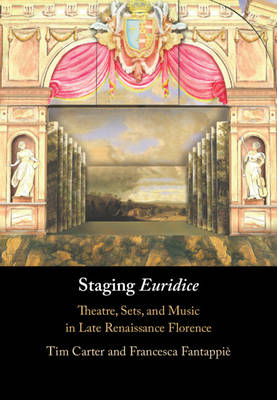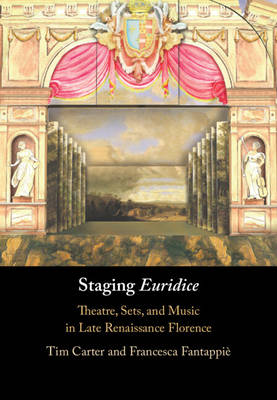
- Afhalen na 1 uur in een winkel met voorraad
- Gratis thuislevering in België vanaf € 30
- Ruim aanbod met 7 miljoen producten
- Afhalen na 1 uur in een winkel met voorraad
- Gratis thuislevering in België vanaf € 30
- Ruim aanbod met 7 miljoen producten
Zoeken
Omschrijving
Euridice was one of several music-theatrical works commissioned to celebrate the wedding of Maria de' Medici and King Henri IV of France in Florence in October 1600. As the first 'opera' to survive complete, it has been viewed as a landmark work, but its libretto by Ottavio Rinuccini and music by Jacopo Peri and Giulio Caccini have tended to be studied in the abstract rather than as something to be performed in a specific time and place. Staging "Euridice" explores how newly-discovered documents can be used to precisely reconstruct every aspect of its original stage and sets in the room for which it was intended in the Palazzo Pitti. By also taking into account what the singers and instrumentalists did, what the audience saw and heard, and how things changed from creation through rehearsals to performance, this book brings new aspects of Euridice to light in startling ways.
Specificaties
Betrokkenen
- Auteur(s):
- Uitgeverij:
Inhoud
- Aantal bladzijden:
- 280
- Taal:
- Engels
Eigenschappen
- Productcode (EAN):
- 9781316515402
- Verschijningsdatum:
- 2/12/2021
- Uitvoering:
- Hardcover
- Formaat:
- Genaaid
- Afmetingen:
- 170 mm x 244 mm
- Gewicht:
- 653 g

Alleen bij Standaard Boekhandel
+ 366 punten op je klantenkaart van Standaard Boekhandel
Beoordelingen
We publiceren alleen reviews die voldoen aan de voorwaarden voor reviews. Bekijk onze voorwaarden voor reviews.








